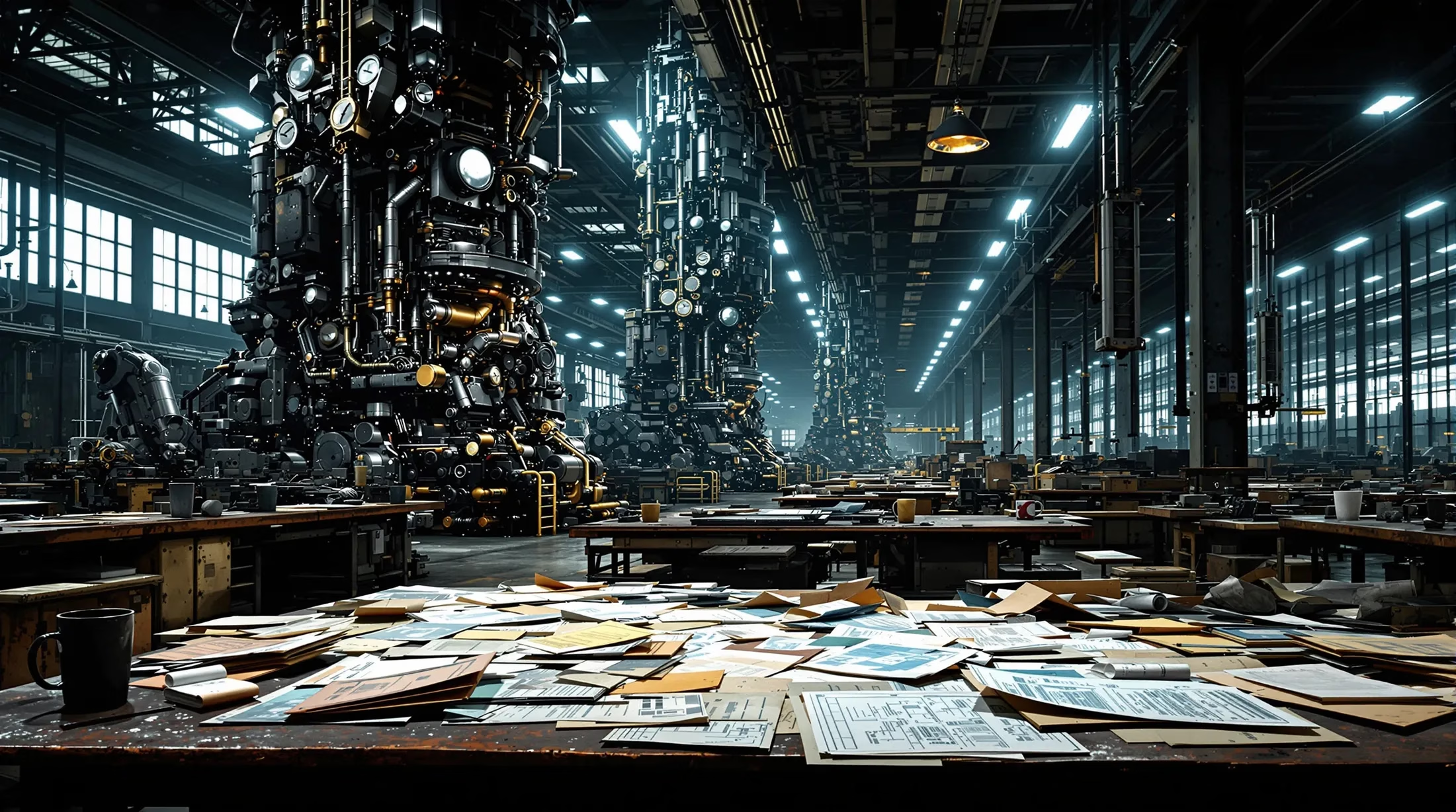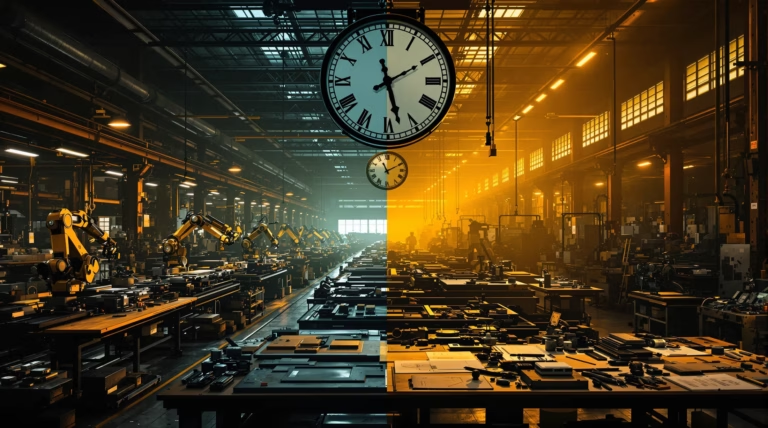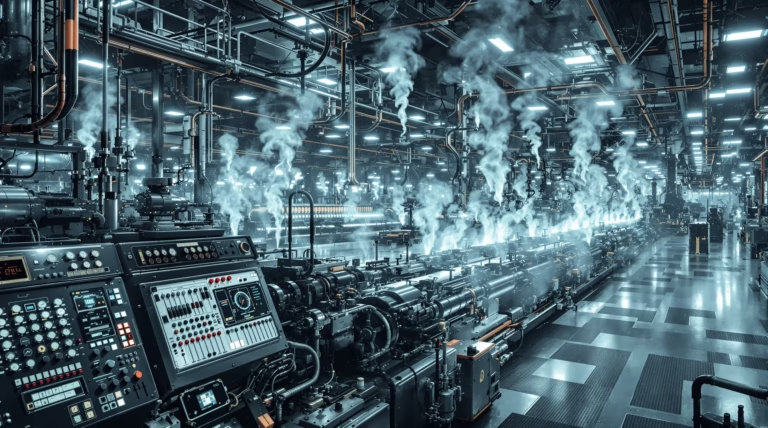Manufacturing Job Titles: A Comprehensive Guide to Roles in the Industry
Navigating the complex landscape of manufacturing job titles can be challenging, yet understanding these roles is essential for both job seekers and employers in the industry. Let’s explore the diverse positions that make up this dynamic sector and discover how they contribute to successful manufacturing operations.
Overview of Manufacturing Job Titles
The manufacturing industry encompasses a vast array of job titles, each representing specific roles and responsibilities within the production ecosystem. While job titles can vary significantly across different companies and sectors, they generally reflect the core functions necessary for successful manufacturing operations.
Organizations typically employ standardized hierarchies that create clear advancement pathways from entry-level positions to executive roles. However, it’s crucial to note that similar titles may carry different responsibilities across companies – a Manufacturing Manager’s role might focus primarily on production oversight in one organization while involving extensive supply chain management in another.
Key Roles in the Manufacturing Industry
- Production Operators – handle day-to-day machinery operation
- Process Engineers – optimize manufacturing methods
- Quality Control Specialists – ensure product standards compliance
- Manufacturing Managers – oversee production processes and team management
- Maintenance Technicians – maintain equipment functionality
- Industrial Engineers – improve production efficiency
- CNC Programmers – manage automated manufacturing systems
- Production Supervisors – coordinate between management and floor workers
- Supply Chain Coordinators – manage material flow
Administrative and Support Roles
- Human Resources Professionals – handle recruitment and labor relations
- Procurement Specialists – manage material sourcing and costs
- Inventory Managers – optimize storage and material availability
- Manufacturing Documentation Specialists – maintain technical documentation
- Manufacturing Compliance Officers – ensure regulatory adherence
- Production Planners – coordinate scheduling and resources
- IT Specialists – maintain manufacturing systems and software
Career Paths in Manufacturing
The manufacturing sector offers diverse career paths across multiple industries, from automotive and aerospace to electronics and consumer goods. Professionals can enter through various entry points and develop specialized expertise over time, with opportunities spanning production, engineering, quality control, and management roles.
Full-Time and Part-Time Opportunities
| Full-Time Positions | Part-Time Positions |
|---|---|
| – Comprehensive benefits packages – Stable schedules – Greater advancement opportunities – Predictable shift rotations |
– Flexible working hours – Entry-level opportunities – Valuable industry experience – Potential pathway to full-time roles |
Growth and Advancement in Manufacturing Careers
Manufacturing careers provide clear advancement pathways with substantial growth potential. Entry-level positions can evolve into specialized roles and management positions through a structured progression system. Here’s how typical career advancement unfolds:
- Entry Level – Production operators and assembly technicians
- Mid-Level – Specialized technicians and team leaders
- Advanced – Department supervisors and specialized programmers
- Senior Level – Production managers and operations directors
- Executive – Plant managers and C-suite positions
Skills and Qualifications for Manufacturing Jobs
Modern manufacturing demands a sophisticated blend of technical expertise and adaptable skills. As production environments evolve with emerging technologies, professionals must combine traditional mechanical aptitude with digital competencies. Success in this field requires both specialized technical knowledge and versatile problem-solving abilities.
Essential Technical Skills
- Equipment operation and maintenance
- Quality control techniques
- Technical drawing and blueprint interpretation
- Computer-Aided Design (CAD) proficiency
- Programmable Logic Controller (PLC) knowledge
- Process improvement methodologies
- Troubleshooting capabilities
Modern manufacturing environments also require strong analytical abilities, effective communication skills, and leadership capabilities. Professionals must understand quality management systems, regulatory compliance, and safety protocols, particularly in regulated industries like medical devices, pharmaceuticals, and aerospace.
Educational Requirements and Degrees
| Position Level | Required Education | Additional Certifications |
|---|---|---|
| Entry-Level Production | High School Diploma/GED | Certified Production Technician (CPT) |
| Technical Specialists | Vocational Training/Associate Degree | Six Sigma Certifications |
| Engineering Roles | Bachelor’s Degree | Certified Quality Engineer (CQE) |
| Management Positions | Bachelor’s/Master’s Degree | Project Management Certifications |
Salary Expectations in the Manufacturing Industry
Manufacturing compensation varies significantly based on role complexity, industry sector, and location. Entry-level positions typically offer competitive hourly rates, while specialized technical and management roles command higher salaries. The industry provides comprehensive benefits packages, including:
- Performance-based bonuses
- Shift differentials
- Overtime opportunities
- Healthcare benefits
- Retirement plans
- Professional development support
Factors Influencing Salaries
- Geographic location – manufacturing hubs in high cost-of-living areas offer higher compensation
- Industry specialization – advanced sectors like aerospace, medical devices, and semiconductors provide premium wages
- Company size – larger manufacturers offer comprehensive benefits packages and structured advancement paths
- Educational qualifications – technical degrees and specialized certifications boost earning potential
- Experience level – senior professionals earn substantially more than entry-level positions
- Skill scarcity – rare technical abilities command premium salaries
- Leadership responsibilities – team management and strategic planning roles correlate with higher compensation
Preparing for a Career in Manufacturing
Success in manufacturing requires strategic preparation and understanding of the industry’s diverse landscape. Job titles and responsibilities can vary significantly between companies, making it essential to analyze positions beyond their titles. Identical roles at different organizations may involve distinct responsibilities, skill requirements, and reporting structures.
Focus on developing both technical expertise and transferable soft skills. Begin by identifying your interests and strengths, then align these with specific industry sectors. Stay informed about manufacturing trends, emerging technologies, and evolving job functions to position yourself for long-term growth in this dynamic field.
Building a Strong Resume and Interview Skills
- Highlight quantifiable achievements (productivity improvements, quality metrics, cost reductions)
- Showcase technical proficiencies with specific machinery and software systems
- Incorporate industry-specific keywords aligned with applicant tracking systems
- Prepare concrete examples of problem-solving and teamwork experience
- Demonstrate understanding of manufacturing processes and quality standards
- Research company products and production methods before interviews
Networking and Job Search Strategies
Manufacturing opportunities often emerge through professional connections before public posting. Engage with industry professionals through:
- Manufacturing associations and trade shows
- Technical conferences
- LinkedIn manufacturing communities
- Alumni networks from technical schools
- Facility open houses and community events
- Industry-specific job platforms
- Specialized manufacturing staffing agencies
- Company career pages
Future Outlook for Manufacturing Jobs
The manufacturing sector’s transformation creates new opportunities alongside traditional roles. While automation reshapes production processes, human expertise remains essential. Workers are transitioning from repetitive tasks to positions focused on monitoring, optimizing, and maintaining sophisticated systems.
| Growth Areas | Annual Openings |
|---|---|
| Quality Control | 67,800 positions |
| Advanced Manufacturing | Rapid expansion |
| Sustainable Production | Growing demand |
| Specialized Technology | Increasing opportunities |
Emerging Trends and Technologies
Smart factories represent the vanguard of manufacturing innovation, integrating artificial intelligence, Internet of Things (IoT) connectivity, and advanced robotics to create unprecedented levels of productivity and quality. Deloitte’s 2024 Manufacturing Industry Outlook reveals substantial gains in multiple areas:
- Enhanced asset efficiency through AI-driven optimization
- Improved labor productivity with advanced automation
- Higher product quality through precision control
- Reduced operational costs
- Enhanced safety standards
These transformations are creating new specialized roles that bridge production knowledge with technological expertise:
- Manufacturing systems analysts
- Industrial IoT specialists
- Digital transformation managers
- Sustainable manufacturing experts
- Additive manufacturing specialists
Industries with High Demand for Manufacturing Talent
| Industry Sector | Key Roles |
|---|---|
| Medical Device Manufacturing | Clean room technicians, Quality assurance specialists, Regulatory compliance experts |
| Aerospace Manufacturing | Precision engineers, Defense specialists, Spacecraft component technicians |
| Automotive Industry | Battery production specialists, EV assembly technicians, ADAS development engineers |
| Semiconductor Manufacturing | Precision operators, Process engineers, Quality control specialists |
| Renewable Energy Equipment | Solar panel technicians, Wind turbine manufacturers, Energy storage specialists |
The automotive sector’s transformation toward electrification and autonomous capabilities has created thousands of new positions requiring hybrid skill sets combining traditional automotive knowledge with electrical and software expertise. Additionally, semiconductor manufacturing expansion and renewable energy equipment production offer promising career paths for professionals interested in contributing to technological advancement and environmental solutions.







